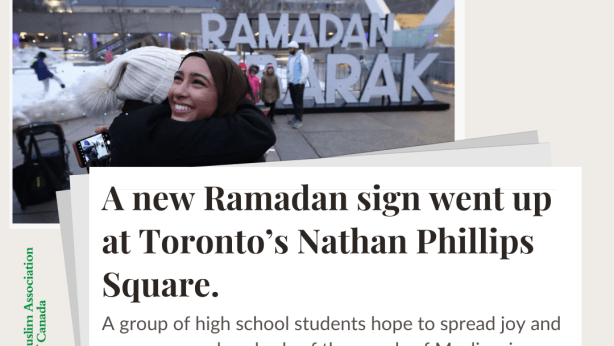For this year’s Eid festival, Muslim communities can connect online

For this year’s Eid festival, Muslim communities can connect online
Typically, the month of Ramadan is associated with community and group worship. Muslim families eager to engage in the unique aspects of the holy month will spend the day fasting and the nights feasting and performing extra prayers at the mosque.
The COVID-19 pandemic has halted such congregations and, in most places, the prohibitions on visits and gatherings means that the nighttime iftar meals with neighbours and friends are non-existent. Instead, most Muslims have been breaking fast and praying quietly at home, alone or with family. And while many have adapted to these sudden, enormous changes, preferring to look inward and deepen personal practice over the 30 days, the end of the blessed month, Eid-ul-Fitr, presents further challenges for Muslims who cannot gather.
Unlike Ramadan, which can mostly be adapted to physical distancing, Eid is typically a day of visiting multiple friends and family, mass communal prayer and community festivals. With COVID-19 not easing up any time soon, such activities will not be possible this year and many Muslims are feeling the mental health effects of grief associated with these losses: instances of stress brought on by isolation, depression, and anxiety continue to rise.
In an effort to mitigate the negative consequences of a physically-distanced Eid, the Muslim Association of Canada (MAC) is tapping into its existing, successful online programming to develop a new kind of celebration. Over the past two months in particular, MAC has run spiritual classes, children’s story-telling, virtual talk shows, youth video game competitions, youth mental health support, seminars with health professionals and politicians and more. Thousands of Muslims across the country have benefitted from the knowledge and sense of community offered. Building on the success of these online endeavours, MAC is organizing something special for Sunday, May 24. Muslim families will be able to log in and partake in an online, virtual celebration from coast to coast.
In the past, MAC has been renowned for its Eid festivals, offered in every major Canadian city and bringing together over 100,000 Canadians to enjoy bazaars, carnivals and other traditional, cultural activities. This year, entertainment by celebrated singers, artists and storytellers will flood into Muslim households, along with spiritual sermons by leading Canadian Muslim scholars and greetings from Prime Minister Justin Trudeau, the federal ministers and premiers from many provinces.
Akin to Canadians watching Canada Day celebrations from Ottawa and enjoying the entertainment together in the safety of their homes no matter where they are in the country, MAC’s online Eid Festival offers a shared experience for Muslims to connect with one another and make beautiful memories in an unforgettable time. To top off the special day, the network of MAC mosques in every major city will be holding “drive-thru” gift-giving activities for young children so they know that even if we cannot get out of the car and congregate in the mosque, their local mosque still cares about them and is still there for them.
The COVID-19 pandemic has brought many lessons for all of us, amidst the very valid fears and stressors: it has encouraged many of us to go inward and spend much-needed time with family and it has pushed community organizations like MAC to innovate existing platforms to remain connected and helpful to Canadian Muslims in this increased time of need. Organizations like MAC, with long-standing educational and spiritual programming and a wide network reach have proven to be at the forefront of addressing the community impacts of COVID-19 and we intend to continue that way.
Sharaf Sharafeldin is Executive Director of the Muslim Association of Canada, a national non-profit organization providing religious and educational services for the Muslim community in Canada. MAC serves more than 50,000 Muslims across the country.


